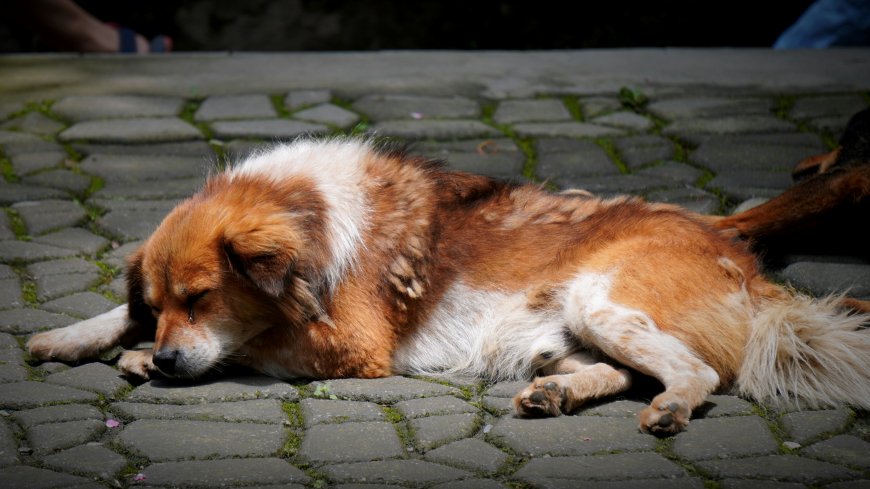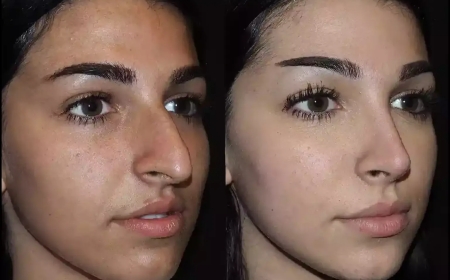Care for Your Dog After Neutering: Warning Signs & Recovery Tips
Neutering is just the beginning of a new chapter in your dog’s life. How you handle recovery makes all the difference. Keep a close eye on healing, manage their comfort, offer nutritious meals, and reach out for help when needed. With the right tools — and help from resources like Biakwe — your dog will be back on all fours, happy and healthy, in no time.

Neutering is a common and responsible decision for many dog owners, but what happensafter the surgery is just as important as the procedure itself. Proper aftercare can help your dog heal faster, avoid health risks, and stay comfortable. However, being aware of the complications of neutering a dog can make a huge difference. From unusual behavior to surgical site issues, knowing what to expect and how to handle it is crucial. Trusted pet care sources like Biakwe offer expert advice to keep you and your furry friend on the right track.
What is Dog Neutering?
Neutering is the surgical removal of a male dog's testicles. Its a routine procedure performed by vets to prevent reproduction and help manage certain behaviors.
Why Do Pet Owners Choose Neutering?
-
Prevents unwanted litters
-
Reduces aggression, humping, and territorial marking
-
Can lower the risk of prostate problems and testicular cancer
Immediate Post-Surgery Expectations
Right after the surgery, dont be alarmed if your dog is drowsy or disoriented. Anesthesia side effects typically wear off within 24 hours.
Behavioral Signs to Expect
-
Sleepiness and whining
-
Slight shivering
-
Wobbliness or imbalance
These reactions are all part of the healing journey just give your dog time and comfort.
Neutered Dog Care Essentials
Create a Calm Environment
Your dog needs rest more than anything else. Set up a recovery space thats:
-
Quiet and away from foot traffic
-
Padded with soft bedding
-
Free of stairs and furniture to jump on
Have These Supplies Ready
-
Elizabethan collar (cone)
-
Vet-approved pain medication
-
Water bowl within easy reach
-
A heating pad or blanket if its chilly
Monitoring for Complications
Its normal to feel a little anxious during recovery. But heres what you should be on alert for.
Most Common Complications of Dog Neutering
Swelling and Infection
Mild swelling is okay, but if the incision site becomes red, swollen, or starts oozing thats a sign of infection.
Bleeding and Bruising
A little bruising might show up, especially on light-colored dogs. However, active bleeding needs immediate attention.
Internal Issues
If your pup refuses food for more than 24 hours, shows signs of pain, or has difficulty urinating, dont wait call your vet.
Emotional Changes
Some dogs show signs of anxiety, withdrawal, or clinginess. These emotional shifts are typically temporary.
When to Contact the Vet
-
Fever
-
Heavy or smelly discharge
-
Lethargy for over 2 days
-
Vomiting or diarrhea
Feeding & Nutrition After Neutering
Appetite Changes
Your dog may skip a meal or two post-op. Thats normal. Offer bland food at first, like boiled chicken or rice.
Best Food for Neutered Dogs
Neutered dogs may experience a slower metabolism, making them prone to weight gain. Look for:
-
High-protein, low-fat formulas
-
Foods with added fiber
-
Vet-approved weight control diets
Activity Restrictions and Guidelines
How Long to Keep Them Calm?
Most vets recommend limiting physical activity for 1014 days. No jumping, running, or rough play.
Safe Ways to Engage
-
Gentle leash walks
-
Chew toys
-
Mental stimulation games like treat puzzles
Caring for the Incision
How to Check the Wound
-
Look twice a day
-
No redness, pus, or swelling
-
The stitches should stay intact and dry
Prevent Licking or Biting
Use a cone, inflatable collar, or recovery suit. One lick can open up the wound and lead to serious problems.
Emotional & Behavioral Shifts
What to Expect
Your dog might seem moody, confused, or unusually quiet. Thats OK. Think of it like a doggy version of post-op blues.
How to Help
-
Give affection
-
Keep routines steady
-
Avoid overwhelming them with guests or loud sounds
Timeline for Dog Recovery from Neutering
Day-by-Day Breakdown
-
Days 12: Groggy, sleeping a lot
-
Days 35: Appetite and energy return
-
Days 610: Wound begins healing, less discomfort
-
Day 14: Cone may be removed (if vet approves)
Things You Must Avoid After Surgery
-
Baths or swimming (wait at least 1014 days)
-
Dog parks or off-leash play
-
Tug-of-war or wrestling games
-
Rough contact with other pets or kids
Follow-Up Vet Visits
Even if things seem fine, your dog still needs a follow-up. The vet will:
-
Check for proper healing
-
Remove stitches (if non-dissolvable)
-
Address any unexpected issues
If anything feels off, dont hesitate trust your gut and call the clinic.
Long-Term Health After Neutering
Watch the Weight
Neutered dogs may gain weight easier, so:
-
Adjust food portions
-
Increase walks and play
-
Use low-calorie treats
Monitor Behavior
Reduced hormones can lead to calmer behavior but you still need to train, play, and connect with your dog.
How Biakwe Supports Pet Parents
Biakwe is more than a pet info site its a reliable partner in your dogs health journey. Their expert articles, such as their neutered dog care guides, provide real, actionable advice that can help you navigate the post-neutering process with confidence and clarity.
Conclusion
Neutering is just the beginning of a new chapter in your dogs life. How you handle recovery makes all the difference. Keep a close eye on healing, manage their comfort, offer nutritious meals, and reach out for help when needed. With the right tools and help from resources like Biakwe your dog will be back on all fours, happy and healthy, in no time.
FAQs
1. What are the most common complications after dog neutering?
Swelling, infection, and mild bruising are common. Watch for excessive licking or signs of pain.
2. How soon can my dog return to normal activities?
Most dogs need 1014 days of rest before returning to regular play.
3. Can neutering cause behavioral problems?
Some temporary mood changes may occur, but long-term behavioral improvements are common.
4. Should I change my dogs food after neutering?
Yes, opt for food designed for neutered or less active dogs to prevent weight gain.
5. Is it normal for my dog to sleep a lot after surgery?
Yes, extra rest is part of recovery. Just ensure they stay hydrated and show signs of gradual improvement.
Please dont forget to leave a review.



































